Potassium Phosphate Manufacturer and Supplier
CAS No.: 7778-77-0 | EC Number.: 231-913-4 | Molecular formula.: KH2PO4, H2KO4P
Potassium Phosphate
Potassium Phosphate Manufacturers, Potassium Phosphate Suppliers, Potassium Phosphate Formula, Potassium Phosphate Price, Potassium Phosphate SDS, Potassium Phosphate Exporter in Mumbai, India.
Vinipul Chemicals Pvt. Ltd is a reputable manufacturer, supplier, and exporter based in India, specializing in high-purity Potassium Phosphate (CAS no. 7778-53-2). We are known for our commitment to producing specialty chemicals with exceptional quality and accuracy in composition. Our Potassium Phosphate is carefully manufactured using superior purity chemicals and state-of-the-art equipment that adheres to international industry standards. This ensures that our product is free from impurities and maintains the desired composition.
As a prominent potassium phosphate manufacturer, we take pride in offering K3PO4 of fine quality, precisely meeting the required composition specifications. Our product is designed to have a long shelf life, providing our customers with a reliable and durable solution. At Vinipul Chemicals, we strive to deliver high-quality Potassium Phosphate that meets the needs and expectations of our valued customers.
What is Potassium Phosphate?
Potassium Phosphate is an inorganic compound utilized for various purposes, including as a laxative, dietary supplement, and for electrolyte-replacement therapy. Its functionality stems from its ability to enhance the fluidity of intestinal contents by retaining water through osmotic forces, indirectly causing constriction of intestinal smooth muscles.
There are three types of Potassium Phosphates available: Mono Potassium Phosphate, Di Potassium Phosphate, and Tri Potassium Phosphate. Each type possesses distinct characteristics and applications. These different forms of Potassium Phosphates allow for versatility in meeting specific needs and requirements in various industries and medical contexts.
Potassium Phosphate Details
This table provides information about Potassium Phosphate, a chemical compound with the CAS No. 7778-53-2 and EC Number 231-907-1. The table also lists various Potassium Phosphate common name and synonyms. The table contains Potassium Phosphate structure, Potassium Phosphate solubility and molecular formula. It is a white granular powder of monoclinic crystals. Potassium Phosphate pH. value is also mentioned in the table. Potassium Phosphate is commonly used in various industries in different applications. It is also used in the pharmaceutical industry for various purposes.
Specifications
| Chemical name | Potassium Phosphate |
| CAS No | 7778-53-2 |
| EC Number | 231-907-1 |
| Commercial name / Synonyms | Potassium phosphate, 7778-53-2, Tripotassium phosphate, Potassium phosphate tribasic, Tripotassium orthophosphate, Phosphoric acid, tripotassium salt, Potassium orthophosphate, potassium phosphate, tripotassium,phosphate |
| Molecular formula | K3PO4 K3O4P |
| Chemical Structure | 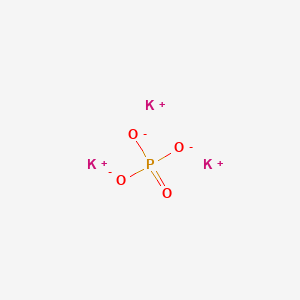 |
| Melting Point | NA |
| IUPAC Name | tripotassium;phosphate |
| Component Compounds | Phosphoric Acid Potassium Phosphate ion |
| Physical Form | NA |
| Physical Appearance | Liquid; Other Solid; Pellets or Large Crystals |
| Solubility | Soluble in water |
| pH | Between 11,5 and 12,3 (1 % solution) |
| Packaging Details | 25 kg / 50 kg / HDPE packaging bags / Drum/ As per Client’s requirements |
Computed Properties
The table provides various properties of a chemical compound, including its potassium phosphate molar mass, four hydrogen bond acceptor counts, an exact mass and mono-isotopic mass, heavy atom counts, and a topological polar surface area. These properties are useful in identifying and characterizing the compound for various purposes in industries such as pharmaceuticals and chemicals.
| Property Name | Property Value |
| Molecular Weight | 212.266 g/mol |
| Hydrogen Bond Acceptor Count | 4 |
| Exact Mass | 211.8445399 g/mol |
| Monoisotopic Mass | 211.8445399 g/mol |
| Heavy Atom Count | 8 |
| Topological Polar Surface Area | 86.2Ų |
| Complexity | 36.8 |
| Covalently-Bonded Unit Count | 4 |
| Compound Is Canonicalized | Yes |
Related Compounds with Annotation
The table provides a list of various potassium phosphate compounds along with their respective Compound CID, neighbour type (2D), and annotation types count. The compounds mentioned include Potassium pyrophosphate, Dipotassium hydrogen phosphate, Potassium phosphate, Potassium hydrogen phosphate hydrate, Kaliumpyrophosphat, monosodium di-potassium phosphate, Dipotassium phosphite, Tri-Potassium Phosphate Monohydrate, Dipotassium deuterium phosphate, and Potassium phosphate tribasic. The table also includes compounds with incomplete or unidentified names. The Compound CID serves as a unique identifier for each compound in the PubChem database, while the annotation types count indicates the number of available annotations for a given compound.
| Structure Image | Structure Name | Compound CID | Neighbour Type | Annotation Types Count |
|---|---|---|---|---|
 | Potassium pyrophosphate, 7320-34-5, TKPP, Diphosphoric acid, tetrapotassium salt, Potassium diphosphate | 23740 | 2D | 9 |
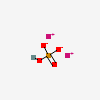 | 7758-11-4, Dipotassium hydrogen phosphate, DIPOTASSIUM PHOSPHATE, Potassium phosphate dibasic, Dipotassium hydrogenphosphate | 24450 | 2D | 12 |
 | Potassium phosphate, 7778-53-2, Tripotassium phosphate, Potassium phosphate tribasic, Phosphoric acid, tripotassium salt | 62657 | 2D | 12 |
 | Potassium hydrogen phosphate hydrate | 6096956 | 2D | 2 |
 | NA | 11622721 | 2D | 1 |
 | NA | 11970380 | 2D | 1 |
 | NA | 13829199 | 2D | 1 |
 | Kaliumpyrophosphat | 16160790 | 2D | 2 |
 | NA | 16166006 | 2D | 1 |
 | monosodium di-potassium phosphate | 19599027 | 2D | 2 |
 | NA | 21132236 | 2D | 1 |
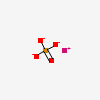 | NA | 21226062 | 2D | 1 |
 | NA | 21463815 | 2D | 1 |
 | Dipotassium phosphite, 13492-26-7, Dipotassium phosphonate, dipotassium;dioxido(oxo)phosphanium, D69679I4JJ | 21889738 | 2D | 7 |
 | 27176-10-9, Tri-Potassium Phosphate Monohydrate, Potassium phosphate tribasic monohydrate, potassium phosphate hydrate, tert-Potassium phosphate monohydrate | 22031701 | 2D | 5 |
 | NA | 22342296 | 2D | 1 |
 | Dipotassium deuterium phosphate, 22387-03-7, dipotassium;deuterio phosphate, PHOSPHORIC ACID-D,DIPOTASSIUM SALT (8CI,9CI), DTXSID90628414 | 22812717 | 2D | 2 |
 | NA | 50987162 | 2D | 1 |
 | potassio phosphate | 86670679 | 2D | 1 |
 | NA | 91654793 | 2D | 1 |
 | Potassium phosphate tribasic, 97%, Potassium phosphate tribasic, p.a., 95%, Potassium phosphate tribasic, reagent grade, >=98%, Potassium phosphate tribasic, Vetec(TM) reagent grade, 97%, Potassium phosphate tribasic, anhydrous, free-flowing, Redi-Dri(TM), reagent grade, >=98% | 124202585 | 2D | 1 |
 | NA | 131842598 | 2D | 1 |
 | NA | 157055196 | 2D | 1 |
 | NA | 157149267 | 2D | 1 |
 | NA | 157453188 | 2D | 1 |
 | NA | 157708400 | 2D | 1 |
 | NA | 158097691 | 2D | 1 |
 | NA | 158198381 | 2D | 1 |
 | NA | 158399232 | 2D | 1 |
 | NA | 158960993 | 2D | 1 |
 | NA | 159716323 | 2D | 1 |
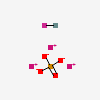 | NA | 160077674 | 2D | 1 |
 | NA | 160174490 | 2D | 1 |
 | NA | 160513555 | 2D | 1 |
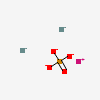 | NA | 161112007 | 2D | 1 |
 | NA | 161112008 | 2D | 1 |
 | NA | 161331237 | 2D | 1 |
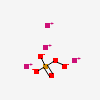 | NA | 162169075 | 2D | 1 |
Potassium Phosphate Price
| Product Range | Price |
| Mono Potassium Phosphate | Rs 85/kilogram |
| Dipotassium Phosphate | Rs 195/kilogram |
| Tripotassium Phosphate | Rs 130/kilogram |
Prices shown above are provisional prices and may change due to different market conditions for latest prices
Call Us
+91-932 223 1817
Mail Us
business@vinipulchemicals.com
Types of Potassium Phosphate
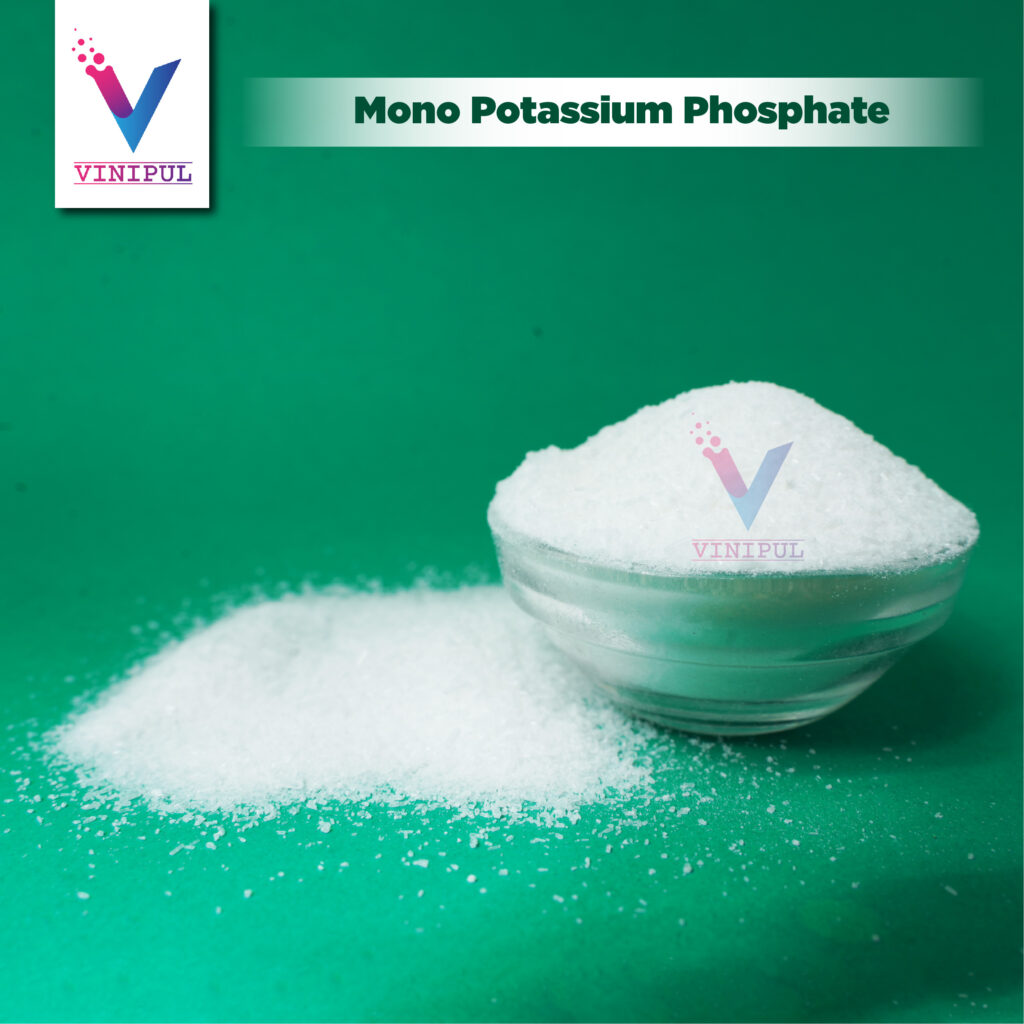
Mono Potassium Phosphate
Mono Potassium Phosphate, also known as MKP or potassium dihydrogen phosphate, is a compound with the chemical formula KH₂PO₄. It consists of one potassium cation, one phosphate anion, and one hydrogen ion. Potassium mono phosphate is commonly used as a fertilizer, food additive, and pH buffer. Mono potassium phosphate fertilizer provides a source of potassium and phosphorus, essential nutrients for plant growth and development. In the food industry, it is utilized as a nutrient supplement.

Dipotassium Phosphate
Dipotassium Phosphate, also called DKP or dipotassium hydrogen phosphate, has the chemical formula K₂HPO₄. It contains two potassium cations, one phosphate anion, and one hydrogen ion. Dipotassium Phosphate is widely used as a food additive, buffering agent, and nutrient supplement. It helps regulate acidity levels, enhance food texture, and serve as a source of potassium and phosphorus. Additionally, it finds applications in water treatment, pharmaceuticals, and as a component in some cleaning products.
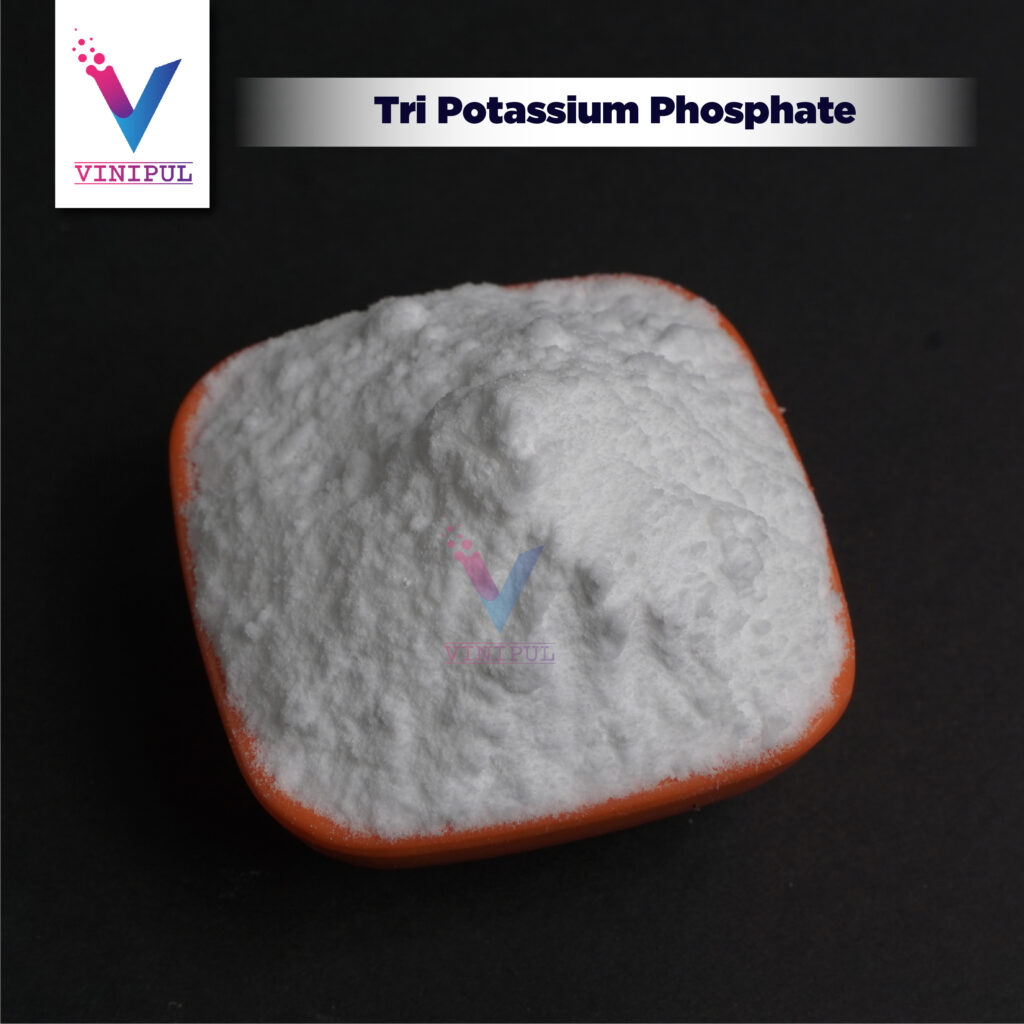
Tripotassium Phosphate
TriPotassium Phosphate, known as TKP or tripotassium phosphate, is represented by the chemical formula K₃PO₄. It consists of three potassium cations and one phosphate anion. TriPotassium Phosphate is primarily utilized as a food additive, emulsifier, and sequestrant. It helps improve the texture and stability of processed foods, acts as a dispersing agent in liquid detergents, and serves as a nutritional supplement. Additionally, it has applications in the pharmaceutical and industrial sectors, including as a cleaning agent
How to Make Potassium Phosphate?
The production process of Potassium Phosphate involves the following steps:
- Wet phosphoric acid is subjected to ultra-sonication in an ultrasonic reactor at temperatures ranging from 2 to 80 degrees Celsius. This ultrasonic treatment occurs for a duration of 10 to 120 minutes. Afterward, the resulting product is cooled to room temperature, and the precipitates are leached, leading to the formation of a filter liquor.
- To regulate the pH value of the filter liquor and induce the formation of precipitates, potassium hydroxide, potassium carbonate, or potassium bicarbonate is employed. The filtered liquor is then concentrated, evaporated, and subjected to crystallization. Subsequently, the crystals are separated, resulting in the production of potassium phosphate.
This manufacturing method offers a simplified process as the desired products are obtained by concentrating and crystallizing a neutralizer. It eliminates the need for extensive concentration of wet phosphoric acid, which typically has low consistency. Additionally, this method helps address the challenge of high energy consumption during the concentration process. By utilizing phosphoric acid with a concentration range of 5 to 40%, potassium phosphate can be directly prepared, providing an efficient and energy-saving approach to production.
Is Calcium Acetate Soluble in Water?
Yes, Calcium Acetate is soluble in water. When Calcium Acetate comes into contact with water, it dissolves and forms an aqueous solution. This solubility in water is one of the reasons why Calcium Acetate is commonly used in various applications, such as food additives, pharmaceuticals, and water treatment processes.
Is calcium acetate a vitamin?
Calcium Acetate serves as a calcium supplement specifically designed to regulate and control the level of phosphate in the blood. It is commonly prescribed for patients undergoing dialysis treatment as a result of severe kidney disease. When the kidneys are not functioning properly, they struggle to effectively filter and remove excess phosphate from the bloodstream. Elevated levels of phosphate in the blood, known as hyperphosphatemia, can lead to complications and adverse effects on the body, particularly in individuals with kidney disease.
Calcium Acetate works by binding to the excess phosphate in the gastrointestinal tract, preventing its absorption into the bloodstream. This mechanism helps to reduce the phosphate levels and maintain them within a healthy range. By effectively managing phosphate levels, Calcium Acetate helps prevent complications associated with hyperphosphatemia, such as bone and mineral disorders.
Patients on dialysis often require calcium supplementation due to the removal of calcium during the dialysis process. Calcium Acetate serves as an essential source of calcium, replenishing the body’s calcium stores and ensuring the proper functioning of vital physiological processes.
Is potassium phosphate soluble in water?
Yes, potassium phosphate is soluble in water. It dissolves readily in water, forming a clear and colourless solution. The solubility of potassium phosphate in water allows it to be easily mixed and incorporated into various applications such as fertilizers, food products, and pharmaceutical formulations. The water solubility of potassium phosphate is an advantageous property that facilitates its utilization in different industries.
Why is potassium phosphate used in food?
Potassium phosphate finds multiple applications in various industries. It is employed as a pH control agent in milk products, ensuring the desired acidity levels and enhancing the stability of the final product. Additionally, potassium phosphate serves as a nutrient supplement, providing essential minerals and promoting the growth and development of organisms. As a sequestrant and emulsifier, it helps improve the stability and texture of food and beverage formulations. In the brewing and fermentation processes, potassium phosphate acts as a malting aid, facilitating enzymatic reactions and enhancing the overall fermentation efficiency. Furthermore, potassium phosphate is utilized as a stabilizer and thickener, contributing to the consistency and texture of various products. With its versatile properties, potassium phosphate plays a vital role in enhancing the quality and functionality of a wide range of applications.
Is potassium phosphate a base or acid?
Base: – Potassium phosphate, also known as potassium phosphate tribasic (K3PO4), is a potent inorganic base with a high pKa value of 12.32 for its conjugate acid. It possesses the advantages of being non-toxic, cost-effective, and easily accessible from various chemical suppliers like Vinipul Chemicals. This compound finds applications as a food additive and is commonly employed to create stable phosphate buffer solutions in aqueous environments. Its versatile properties make it a valuable ingredient in various industries.
What is the difference between potassium phosphate and potassium?
Potassium is a pure element, potassium phosphate refers to a group of compounds that contain both potassium and phosphate ions. Potassium is an essential mineral for human health, while potassium phosphate compounds serve various industrial and scientific purposes. Potassium phosphate and potassium are two different chemical compounds with distinct properties and uses.
Potassium, symbolized as K on the periodic table, is an essential mineral and electrolyte that plays a vital role in various physiological processes in the human body. It is a highly reactive alkali metal known for its characteristic silvery appearance and soft texture. Potassium is crucial for maintaining proper nerve function, regulating fluid balance, supporting muscle contractions, and promoting heart health. In the context of dietary intake, potassium is commonly obtained from fruits, vegetables, and other food sources.
On the other hand, potassium phosphate refers to a group of inorganic compounds that contain potassium cations (K+) and phosphate anions (PO43-). These compounds are derived from the reaction between potassium hydroxide (KOH) and phosphoric acid (H3PO4). Potassium phosphate compounds come in different forms such as monopotassium phosphate (KH2PO4), dipotassium phosphate (K2HPO4), and tripotassium phosphate (K3PO4). They are widely utilized in various applications, including as food additives, fertilizers, pH control agents, buffering agents, and in laboratory research.
Industrial Applications
Potassium Phosphate finds applications in various industries due to its versatile properties. Here are some common applications of Potassium Phosphate in different sectors:

Agriculture
Potassium Phosphate is widely used as a fertilizer in agriculture. It provides essential nutrients like potassium and phosphorus, promoting plant growth, root development, and overall crop yield. It is particularly beneficial for crops that require high levels of potassium, such as fruits, vegetables, and grains.

Food Industry
Potassium phosphate in food industry serves several purposes. It acts as a food additive, helping to regulate acidity levels, improve food texture, and enhance stability. It is often used in processed meats, baked goods, dairy products, and beverages. Additionally, Potassium Phosphate is a source of potassium, an important electrolyte and essential mineral for the human body.

Pharmaceuticals
In the pharmaceutical sector, Potassium Phosphate is utilized in the formulation of certain medications and supplements. It can be found in electrolyte-replacement solutions and as a component in some oral rehydration salts. Potassium Phosphate is used to balance electrolyte levels in the body and maintain proper cellular function.

Water Treatment
Potassium Phosphate plays a role in water treatment processes. It can be used as a pH buffer to adjust and stabilize the acidity or alkalinity of water. Additionally, potassium phosphate buffer is employed as a sequestrant, helping to bind and remove metal ions from water, thus reducing scale formation and improving water quality.

Cleaning Products
Potassium Phosphate is used in the formulation of cleaning agents and detergents. It acts as a dispersing agent, helping to break down and remove dirt, grease, and stains. Potassium Phosphate can improve the effectiveness of cleaning solutions and contribute to better cleaning performance.
These are just a few examples of the diverse applications of Potassium Phosphate in different industries. Its wide range of uses showcases its importance and versatility in various sectors, contributing to the development and improvement of numerous products and processes.
Potassium Phosphate Uses
Potassium Phosphate has diverse applications across several industries. Here are some common uses:
- Corrosion Inhibitors: Potassium Phosphate is utilized as a corrosion inhibitor in various industrial processes. It helps protect metal surfaces from degradation caused by corrosion, ensuring their longevity and reliability.
- Anti-Scaling Agents: Potassium Phosphate is effective in preventing the formation of scales and deposits in water systems and equipment. It acts as an anti-scaling agent, helping to maintain the efficiency and performance of industrial machinery.
- Surface Active Agents: Potassium Phosphate is employed as a surface active agent in different applications. It aids in reducing surface tension, improving wetting and spreading properties, and enhancing the effectiveness of cleaning agents and surfactants.
- Medicines: Potassium Phosphate is used in the formulation of medicines and pharmaceutical products. It serves as a pharmaceutical aid and buffering agent, helping to stabilize pH levels and improve the efficacy and stability of medications.
- Food Products: Potassium Phosphate finds several applications in the food industry. It is used in baking powder, yeast foods, and nutrient solutions to enhance dough rise and improve texture. It also acts as a buffer and sequestrant, regulating acidity levels and enhancing the stability of food products.
- Lab Reagent: Potassium Phosphate is commonly employed as a lab reagent for various chemical and biological experiments. Its buffering properties and known composition make it suitable for pH determination and other laboratory procedures.
- Emulsifying Salts and Culture Nutrient: Potassium Phosphate is utilized in the food and pharmaceutical industries as an emulsifying salt for processed cheese products and as a culture nutrient in pharmaceutical manufacturing. It contributes to the desired texture, stability, and nutritional content of these products.
Overall, Potassium Phosphate plays a vital role in corrosion prevention, scaling inhibition, surface modification, pharmaceutical formulations, food production, and laboratory experiments, showcasing its broad range of applications across different sectors.
About Company
Vinipul Chemicals Pvt. Ltd. is a renowned company recognized for its expertise in the manufacturing, supplying, and exporting of high-purity Potassium Phosphate. With a strong commitment to quality and customer satisfaction, Vinipul Chemicals has established itself as a trusted name in the industry. The company prides itself on delivering Potassium Phosphate products that adhere to international standards, ensuring accurate composition and purity.
Through the utilization of superior purity chemicals and state-of-the-art manufacturing equipment, Vinipul Chemicals Pvt. Ltd. guarantees the production of Potassium Phosphate with exceptional quality. With a focus on precision and long shelf life, the company aims to meet the diverse needs of its customers. Whether it is in the form of a laxative, dietary supplement, or electrolyte-replacement solution, As one of the leading potassium phosphate manufacturers, Vinipul Chemicals is dedicated to providing high-purity Potassium Phosphate that meets the stringent requirements of various industries.
FAQ's
Potassium Phosphate is available in Pure and Technical grades, and it comes in powder or crystalline form. Subtypes include Monobasic (MKP), Dibasic (DKP), and Tribasic (TKP).
The main types include Monopotassium Phosphate (MKP), Dipotassium Phosphate (DKP), and Tripotassium Phosphate (TKP).
Food, animal feed, agriculture, fertilizers, and water treatment industries use this chemical widely.
It offers excellent solubility, high purity, stable pH buffering, and better performance in nutrient absorption.
Yes, it meets multiple regulatory compliances as per client declarations.
Shelf life is 2 years from the date of manufacturing when stored in a cool, dry place away from moisture and sunlight.
No, it is not hazardous and requires no special handling beyond standard industrial hygiene.
It is available in drums and bags as per customer needs.
Standard sizes range from 25 kg to 50 kg.
Yes, both neutral and branded label packaging is available on request.
Orders are generally dispatched within 1 to 2 working days.
Yes, both PAN India delivery and export services are available.
Yes, all documents are provided as part of the standard operating process.
Yes, each batch undergoes quality control and the report is shared.
Yes, samples are available for quality approval.
Yes, third-party validation can be arranged on request.
The MOQ is 25 kilograms.
Yes, trial and low-volume pricing is offered to new buyers.
Pricing is flexible and can be quoted as per customer requirements.
Yes, both GST and export-compliant invoices are provided.
Yes, discounts are available depending on order volume and frequency.
Clients report better crop yield, purity, and consistent quality.
Due to its excellent solubility, snow-white appearance, and purity.
Yes, a food company shifted from imports to our product due to better results.
Our customers appreciate consistent quality, quicker dispatch, and responsive service.
Feedback collection, regular updates, and complete dispatch tracking are provided.
Yes, certifications are available to validate manufacturing credibility.
Client references are withheld for privacy, but we cater to major players in food and agro sectors.
High quality at competitive pricing is our key advantage.
Payment terms are often discussed—credit is offered after 3 successful prepaid orders or on reference.
Yes, we’ve replaced suppliers who failed on quality or delayed dispatch.
It is also known as Tripotassium orthophosphate or the potassium salt of phosphoric acid.
The pH typically ranges between 5.8 to 8.0.
It originates from neutralizing phosphoric acid with potassium compounds.
Market Area
We supply and exports Potassium Phosphate in all parts of the world such as
Potassium Phosphate in Africa Countries
South Africa , Nigeria, Kenya, Ghana, Ethiopia, Tanzania, Algeria, Angola, Benin, Botswana, Burkina Faso, Burundi, Cabo Verde, Cameroon, Central African Republic (CAR), Chad, Comoros, Democratic Republic of the Congo, Côte d’Ivoire, Djibouti, Egypt, Equatorial Guinea, Eritrea, Gabon, Gambia, Guinea, Guinea-Bissau, Lesotho, Liberia, Libya, Madagascar, Malawi, Mali, Mauritania, Mauritius, Morocco, Mozambique, Namibia, Nigeria, Rwanda, Sao Tome and Principe, Senegal, Seychelles, Sierra Leone, Somalia, South Sudan, Sudan, Swaziland, Togo, Tunisia, Uganda, Zambia, Zimbabwe.
Potassium Phosphate in Gulf Countries
Oman, Qatar, Kuwait, Saudi Arabia, Dubai, Bahrain, Iran, United Arab Emirates
Potassium Phosphate in Asia Countries
Afghanistan, Armenia, Azerbaijan, Bahrain, Bangladesh, Bhutan, Brunei, Cambodia, China, Cyprus, Georgia, India, Indonesia, Iran, Iraq, Israel, Japan, Jordan, Kazakhstan, Kuwait, Kyrgyzstan, Laos, Lebanon, Malaysia, Maldives, Mongolia, Myanmar (Burma), Nepal, North Korea, Oman, Pakistan, Palestine, Philippines, Qatar, Russia, Saudi Arabia, Singapore, South Korea, Sri Lanka, Syria, Taiwan, Tajikistan, Thailand, Timor-Leste, Turkey, Turkmenistan, United Arab Emirates (UAE), Uzbekistan, Vietnam, Yemen
We supply Potassium Phosphate in all parts of India.
Andhra Pradesh, Arunachal Pradesh, Assam, Bihar, Chhattisgarh, Goa, Gujarat, Haryana, Himachal Pradesh, Jammu & Kashmir, Jharkhand, Karnataka, Kerala, Madhya Pradesh, Maharashtra, Manipur, Meghalaya, Mizoram, Nagaland, Odisha, Punjab, Rajasthan, Sikkim, Tamil Nadu, Telangana, Tripura, Uttarakhand, Uttar Pradesh and West Bengal.
Note: – Please be advised that the information contained in this document is intended for illustrative purposes only. Due to variations in product grade, applications, industries, or uses, the accuracy of the information provided cannot be guaranteed. © Copyright 2023 © Vinipul Chemicals All Rights Reserved (Terms of Use). Reproduction of any material from this site is strictly prohibited without permission. Vinipul Chemicals products are exclusively sold through the company’s website. For precise product specifications and requirements, as well as advice on which products are best suited for your specific application needs, please contact us at business@vinipulchemicals.com Use Terms | Privacy.


